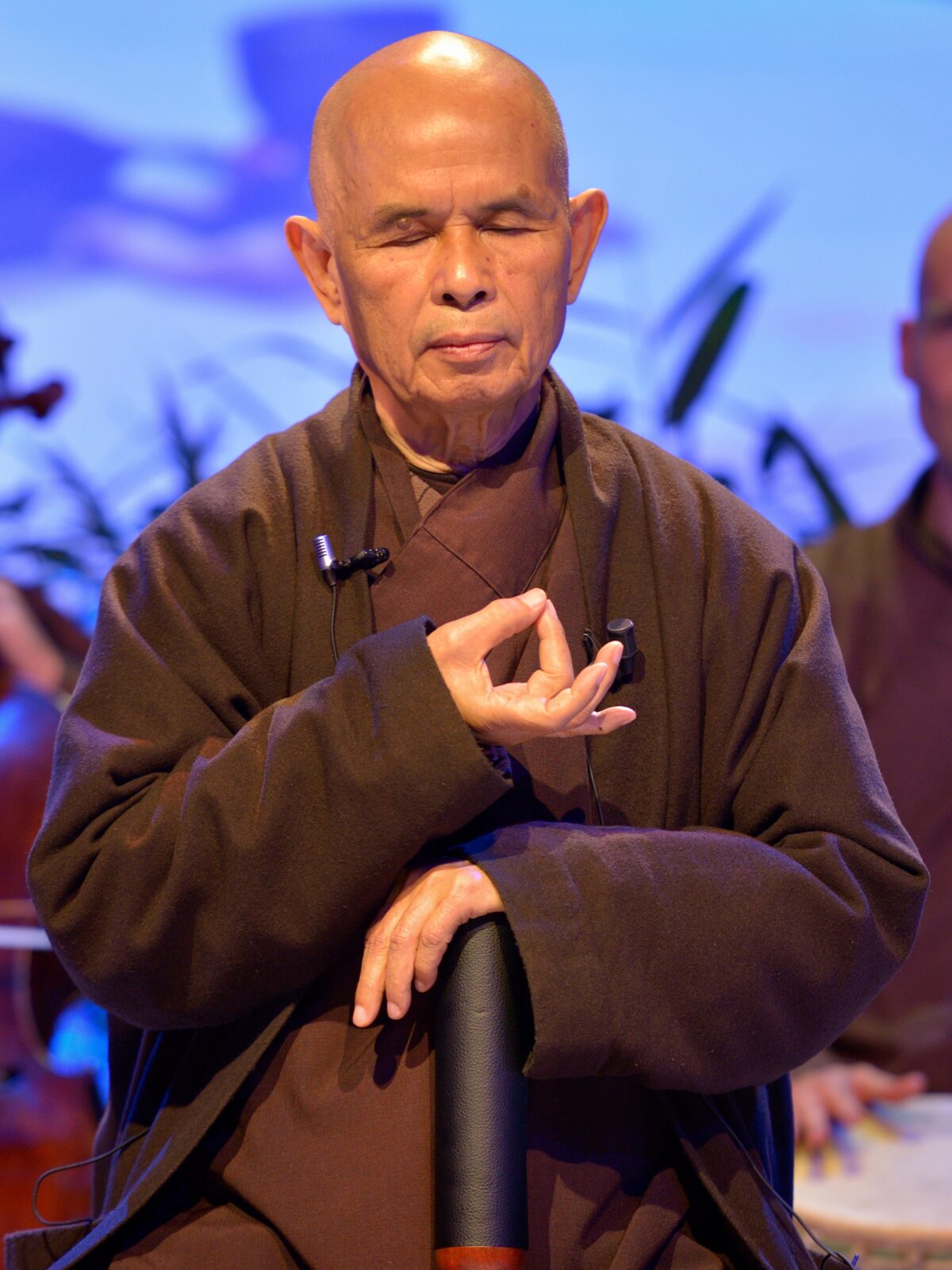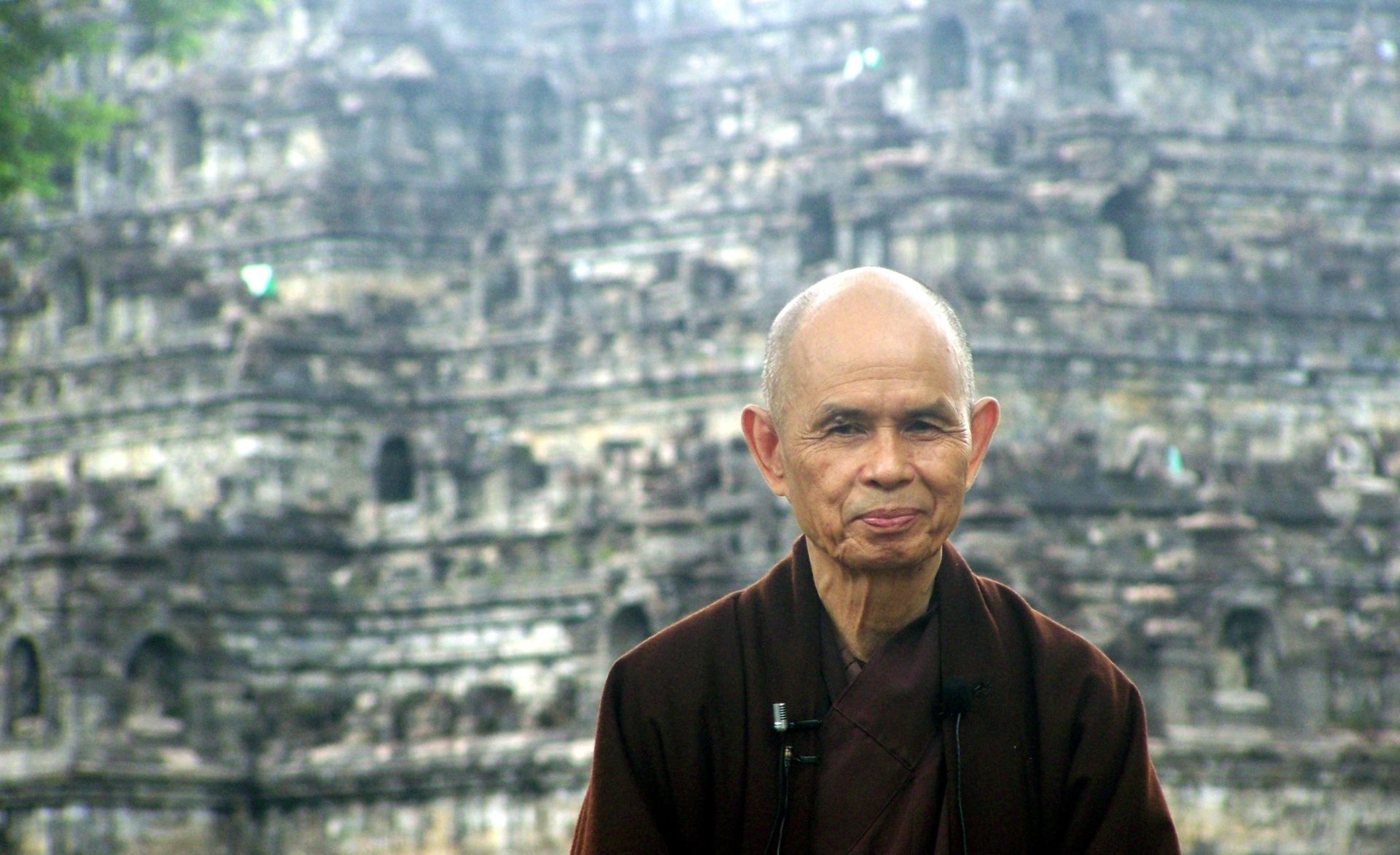from an upcoming new revision of Chanting from the Heart
Published on
Chanting from the Heart is a collection of verses, chants, practices, and ceremonies, developed and used regularly by the monks, nuns, and laypeople at the monasteries and lay retreat centers established by Thích Nhất Hạnh and his global community. The book was first published in the year 2000.
from an upcoming new revision of Chanting from the Heart
Published on
Chanting from the Heart is a collection of verses, chants, practices, and ceremonies, developed and used regularly by the monks, nuns, and laypeople at the monasteries and lay retreat centers established by Thích Nhất Hạnh and his global community. The book was first published in the year 2000. It is in the main a translation of a chanting book compiled and composed by the Venerable Thích Nhất Hạnh in Vietnamese. Throughout his life he composed new chants and translated ancient Buddhist scriptures from Chinese into Vietnamese.

I heard these words of the Buddha one time when the Lord was staying in the mango grove in the cool shade of the mango trees along the bank of the Bhadra River in the land of Magadha. The elders Shariputra and Maudgalyayana had recently passed away. It was the full-moon day of the Uposatha ceremony and the precepts were recited.
The Buddha spread out his sitting mat and sat facing the community. After looking out at those gathered, he said, “As I look at our community, I see a large space left by the Venerables Shariputra and Maudgalyayana who have passed into nirvana. In our Sangha, these venerables were the monks who were the most eloquent in giving Dharma talks, encouraging and instructing all the other monks, nuns, and laypeople.
“O monks, people seek two kinds of riches—material riches and the riches of the Dharma. In their search for material riches, they can go to worldly people. In their search for the riches of the Dharma, they could always go to the Venerables Shariputra and Maudgalyayana. The Tathagata is someone who is not searching for anything, whether it is material or the Dharma.
“O monks, do not be sad or anxious because Shariputra and Maudgalyayana have passed into nirvana. On large trees, filled with leaves, sumptuous fruits, and flowers, the largest branches also have to break. On jeweled mountains, the highest peaks also have to erode. In the Sangha of the Tathagata, the Venerables Shariputra and Maudgalyayana were the greatest students. So it is natural that these venerables would enter nirvana before you. Do not give rise to feelings of sorrow or anguish.
“All phenomena that are born, exist, and are subject to the influence of other phenomena, in other words, all phenomena that are composite, must abide by the law of impermanence and eventually cease to exist. They cannot exist eternally, without someday being destroyed. I have reminded you many times that everything we cherish and hold dear today, we will have to let go of and be separated from. In not too long a time, I will also pass away. Therefore, I urge you to practice being an island unto yourself, knowing how to take refuge in yourself, and not taking refuge in anyone or anything else.
“Practice taking refuge in the island of the Dharma. Know how to take refuge in the Dharma, and do not take refuge in any other island or person. This means to practice dwelling in the contemplation of the body in the body. Use the exercises diligently to nourish Right Understanding and Right Mindfulness to master and transform craving and anxiety that belong to the world. Contemplate the body outside the body, using the exercises diligently to nourish Right Understanding and Right Mindfulness to master and transform craving and anxiety that belong to the world. That is what is meant by returning to the island of oneself in order to take refuge in the island of oneself, returning to the island of the Right Dharma in order to take refuge in the island of the Right Dharma and not taking refuge in any other island or any other thing.”
When the bhikshus heard the Buddha offer this teaching, they were all very happy to put it into practice.
Samyukta Agama 639
In consultation with Taisho Revised Tripitaka 99 and Samyutta Nikaya 47.14
This is an excerpt from Chanting from the Heart, Volume One, an upcoming two-volume revision of the original publication from Parallax Press.

